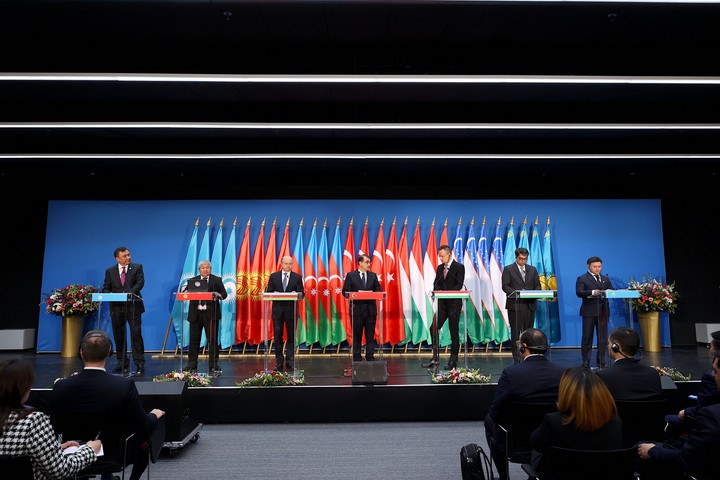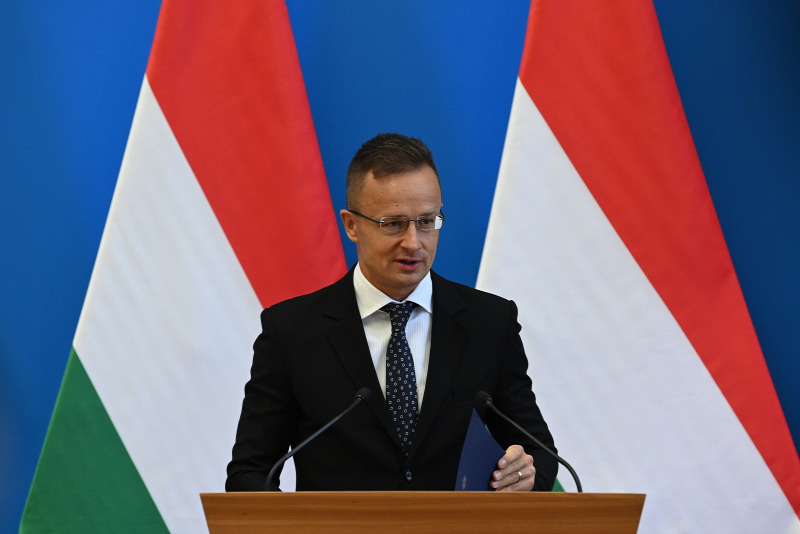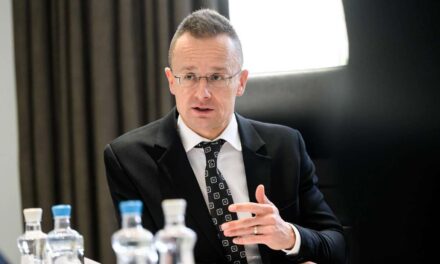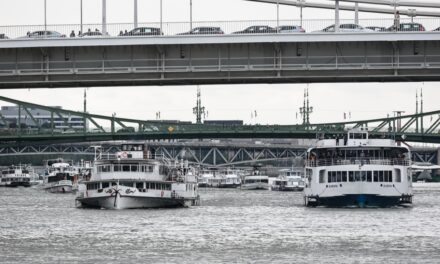The security of Hungary's energy supply cannot be guaranteed either now or in the future without the Turkish states, however, our relations cannot be characterized simply as "energy friendship", stated Minister of Foreign Affairs and Trade Péter Szijjártó on Thursday in Budapest.
According to the announcement of the Ministry of Foreign Affairs and Trade, the head of the department
stated at the meeting of the energy ministers of the Organization of Turkic States (TÁSZ) that Europe is facing an energy crisis and that this year will be even more difficult than last year, on the one hand due to the loss of approximately 60 billion cubic meters of Russian natural gas, the increase in demand due to the reopening of the Chinese economy and the European LNG capacities due to its limitation.
"We in Hungary have never treated the security of energy supply as an ideological issue, but as a physical issue. We have never and will never discriminate against any energy source or transportation route on political grounds," he underlined.
"For us, diversification means that we can buy energy carriers from as many sources and via as many routes as possible, not that we change the direction of dependence from one to another," he added.
Péter Szijjártó emphasized: it is not an exaggeration to state that Hungary's energy security cannot be guaranteed either now or in the future without the Turkish states.
He pointed out that the supply of our country, guaranteed in long-term contracts, takes place primarily through Turkey, last year 4.8 billion cubic meters of gas arrived via the Turkish Stream pipeline.
"Our friendship with these countries is not an energy friendship. We were already in good shape when those who are now coming for a photo with President Aliyev waved at us arrogantly and condescendingly, why are we building relations with Azerbaijan," he said.

Photo: MH/Tamás Purger
He added that the transit will go through Turkey, a political agreement has been reached on this, and the relevant companies are now negotiating the details. In addition, certain infrastructure developments are necessary in Southeastern Europe, which is why Hungary joined forces with Bulgaria and Romania on the matter, and the agreement will be signed at the end of April.
Finally, the minister touched upon the issue of nuclear energy and believed that a major civil nuclear breakthrough seems to be unfolding in Europe, after new blocks are being planned and built in seven member states.
He highlighted: within the TÁSZ, there was a great opportunity for nuclear cooperation, since a nuclear power plant is being built in Turkey with the same technology and contractor as in Hungary, Kazakhstan and Uzbekistan are among the world's leading uranium producers, and an agreement has been reached with each member state on nuclear training.
"In this way, we will be able to make even better use of the competitive advantage that, by using nuclear energy, we can become independent from the completely crazy changes of the international energy market and from the sometimes skyrocketing prices," he emphasized.
Finally, he concluded that it was a good decision to join the Organization of Turkic States as an observer, from which Hungary has benefited a lot so far, and thus energy security can be guaranteed more easily.
In response to questions from journalists, Péter Szijjártó pointed out that Hungary, like every member state of the European Union, has been on the Russian list of so-called unfriendly states for months, but despite this, the energy cooperation between the parties, for example, takes place in an undisturbed and correct manner.
"There is nothing new here, despite the fact that we are on this list, our energy cooperation is going smoothly and correctly."
He emphasized that the long-term Russian gas supply contract is reliable, Gazprom is a reliable partner, this 4.5 billion cubic meters per year ensures the security of supply of our country in the long term. As he stated, the annual consumption is 9-10 billion cubic meters, of which the Azeri source may account for two billion in the future.
Source: Magyar Hírlap
Featured image: MTI/Zoltán Máthé












